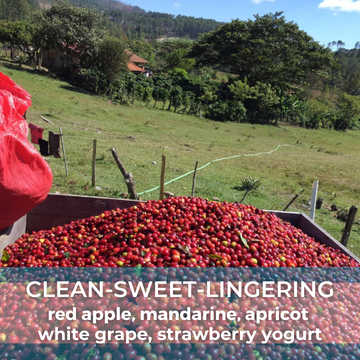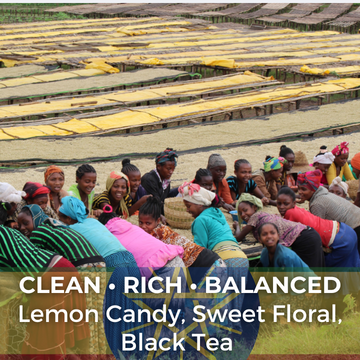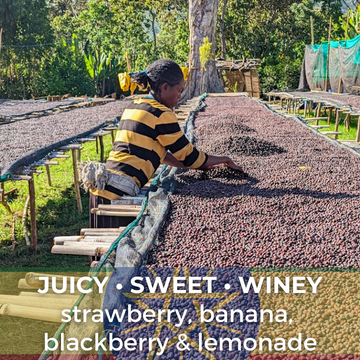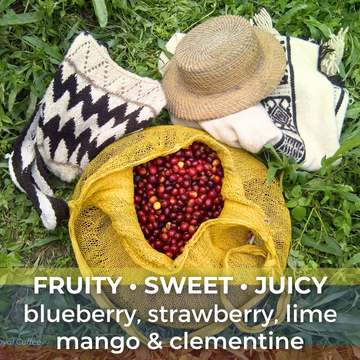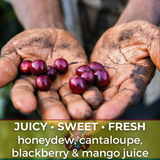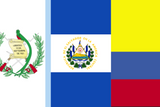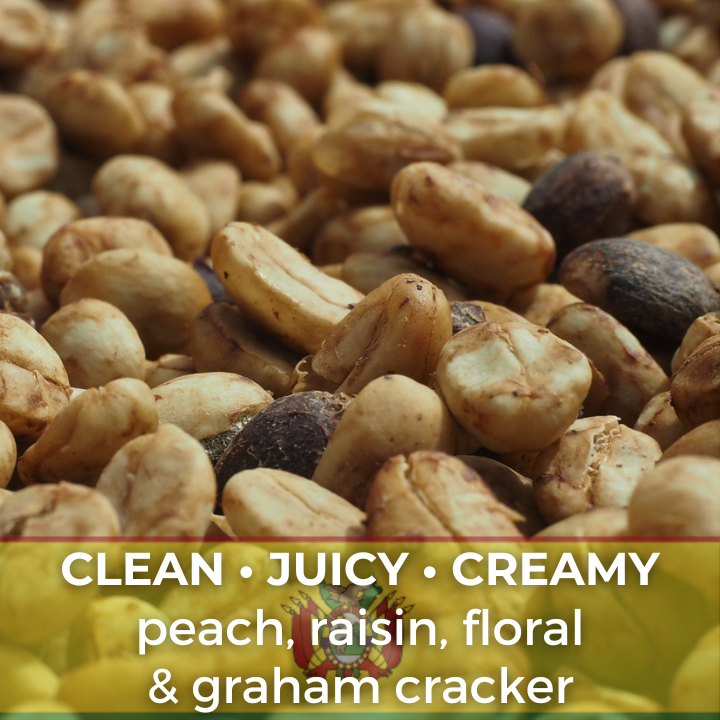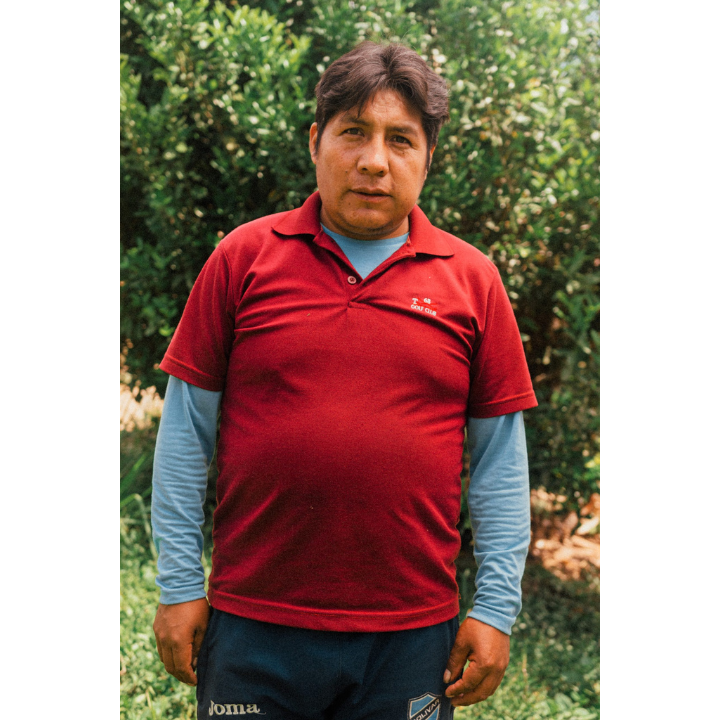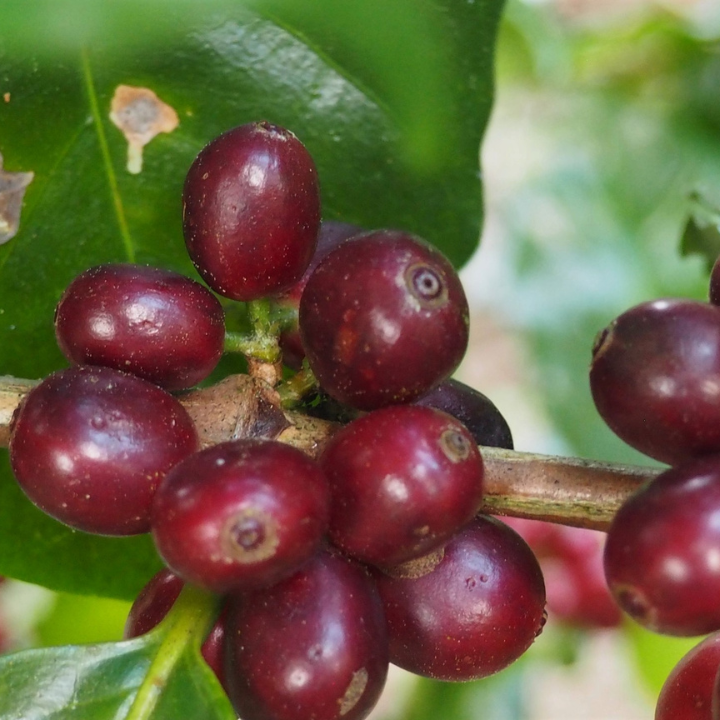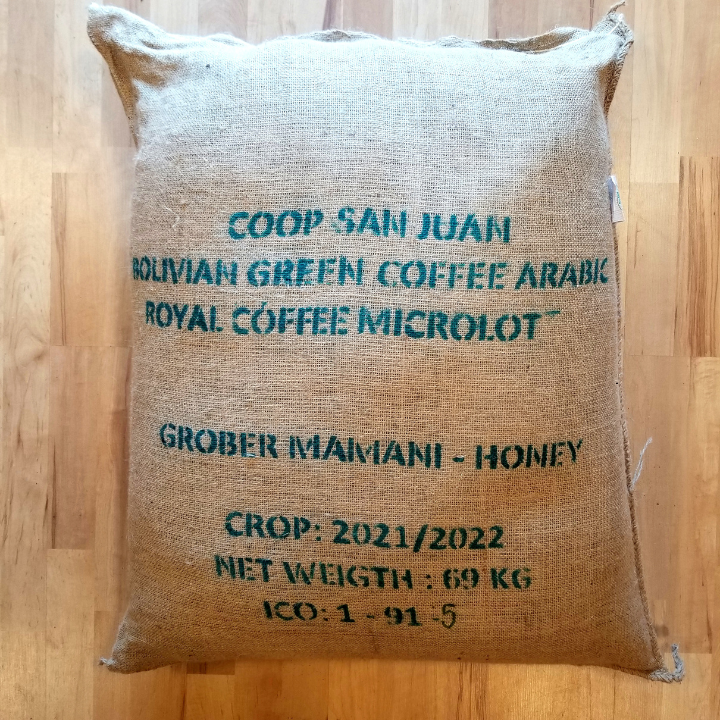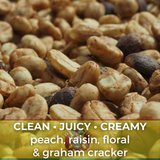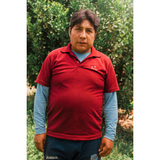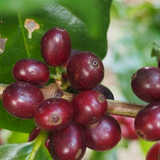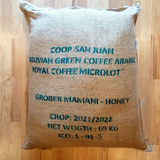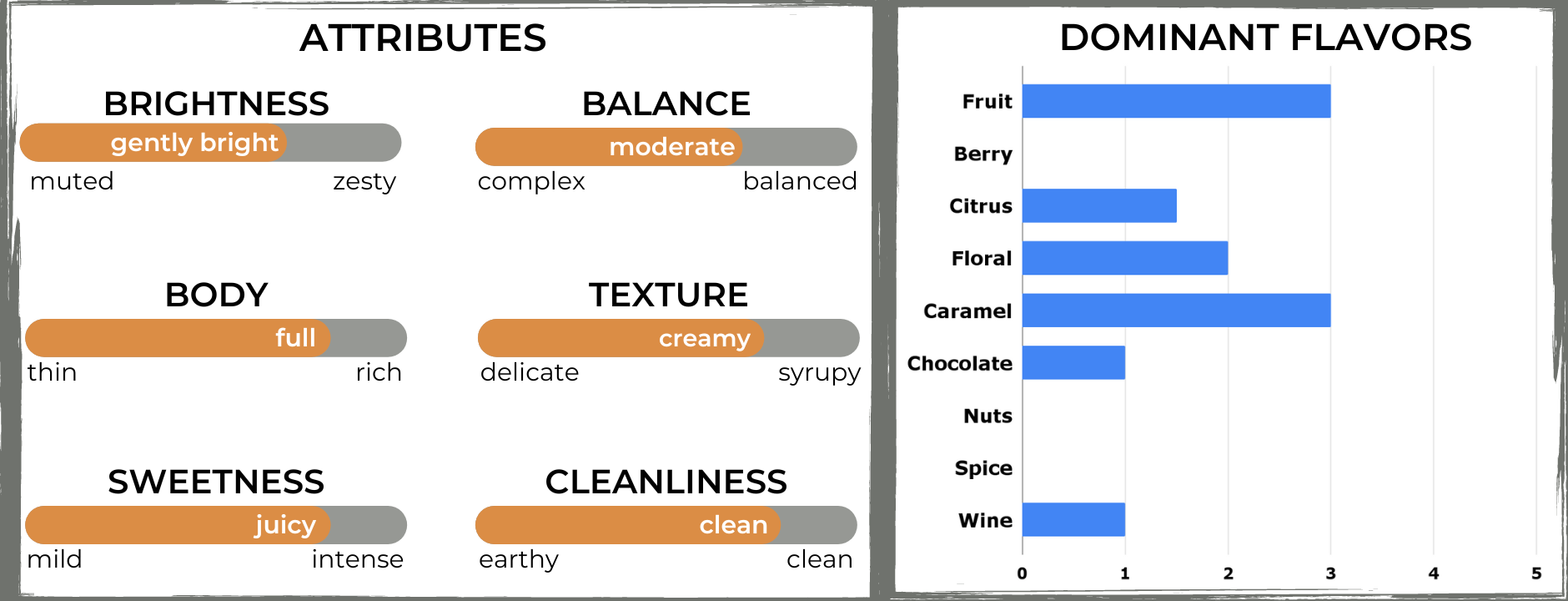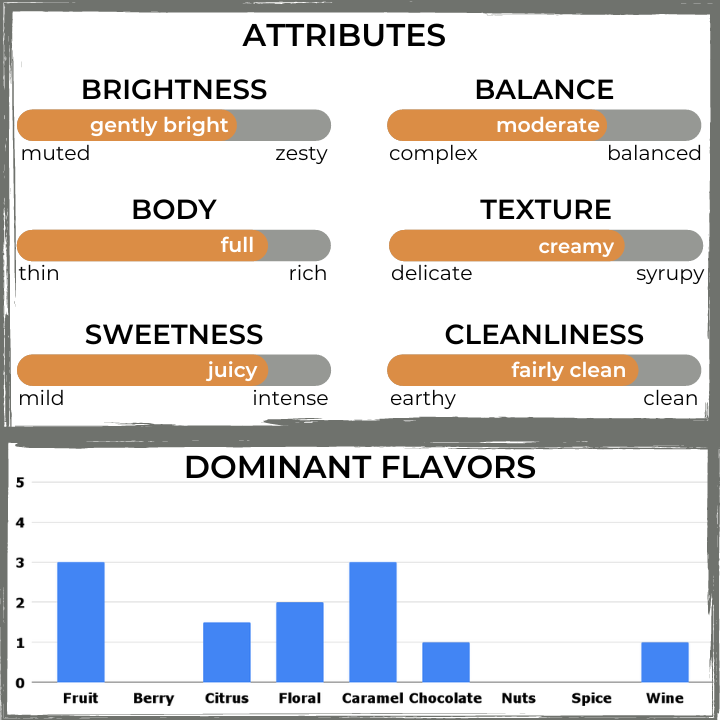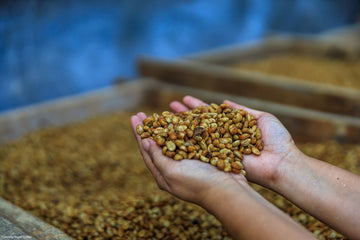Sold Out
Bolivia Irupana Grober Mamani Honey Organic
It’s been a rare treat to have some excellent coffee from Bolivia this year. Bolivia doesn’t export very much coffee, so we always jump at the chance to include them in the lineup, especially when they’re as good as this one! Grober Mamani, owner of Finca Machacamarca, has chosen to process this particular microlot using the popular Honey method. Often categorized as a compromise between the clean, bright profile of fully washed and the wild, intense sweetness of natural processing, Honey processing suits this coffee perfectly. It’s brought juicy sweetness to the cup while leaving some gentle brightness and a smooth, clean finish. Look for notes of ripe peach, sweet raisin and graham cracker along with a floral undertone throughout.
Reminder! This coffee is raw, you must roast it before brewing
Arrival Date: August 26th, 2022. US Arrival August, 2022
Acidity & Brightness: Gently bright and juicy sweet.
Balance & Finish: Fairly balanced, smooth, clean finish
Body & Texture: Full bodied and creamy
Flavors: Peach, raisin and graham cracker with a floral undertone
Grade: SHB, grown at 1820 masl
Certifications: Organic
Processing: Honey processed, depulped and immediately dried on raised screens in the sun
Grower: Grober Mamani | Finca Machacamarca
Region: Irupana municipality, La Paz Department, Bolivia
Varietals: Catuai and Caturra
Recommended Roast Range: City to Full City (Light to Medium)
We like this coffee best at City+ (Light-medium, the tail end of first crack), but it will perform well anywhere in the Light to Medium spectrum. Lighter roasts will be a bit more complex and bright while exhibiting some heavier floral tones. Medium roasts will provide more balanced sweetness and a bit more body. You can take it up to the very beginning of second crack if that’s your preference, but any darker and you’ll lose the more subtle flavor notes in favor of a strong “roasty” profile.
Royal Coffee - "Coffee has been in Bolivia for hundreds of years, but now a new generation of coffee farmers dedicated to producing high-quality coffee are taking the stage in Bolivia. For the first time in the country’s history, green coffee production has funding and support from the federal government, fueling the search for knowledge among dedicated young coffee professionals. The epicenter in the rise of Bolivian specialty coffee is in the los Yungas region, where most farms were first established after a wave of migration to the region caused by Bolivia’s Agrarian Revolution in the 1950s. And nearly a century later this lot emerges from a single small farm belonging to Grober Mamani and his family. The 8-acre farm called Finca Machacamarca is located near Caranaví in the Irupana municipality. The Mamani family has been growing coffee in the greater Yungas region of Bolivia for over 50 years. Grober carefully harvests the cherry, depulps and dries the coffee on patios and raised beds with mucilage still attached, skipping the washing stage to save water. Since Bolivia is a landlocked coffee producing country, farmers need help getting their coffee to the international market. Felix Chambi Garcia through his leadership role at the San Juan cooperative has become an important figure, helping producers with the logistics of moving coffee to the dry-mill where quality and traceability are protected during the preparation for export.”
